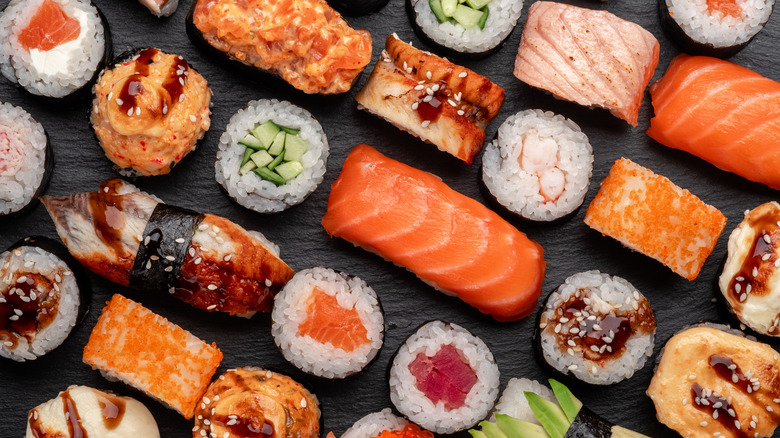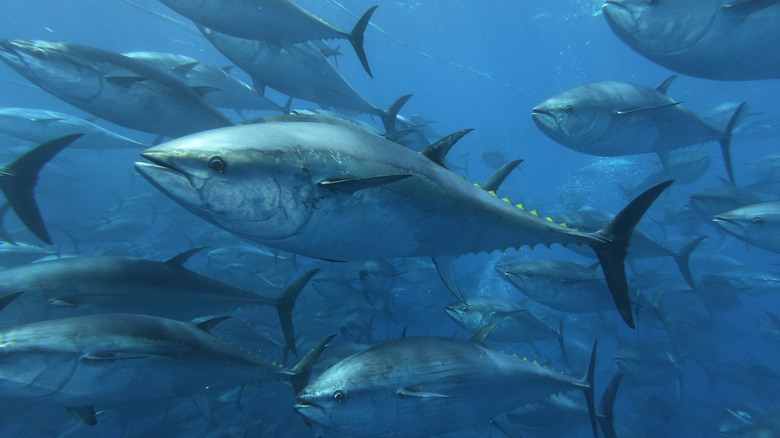Why The Tuna In Your Sushi May Be Fake
Many of us try to be conscious of what we put into our bodies. Whether on a health kick or being environmentally conscious, it is important to be aware of what's in our favorite foods. But, this task may be more difficult than many of us realize.
The book "Real Food/Fake Food: Why You Don't Know What You're Eating and What You Can Do About It" by Larry Olmsted highlights many grocery store items that are commonly swapped out with sneaky, cheaper substitutions. From beef to cheese to seafood, it seems there is no food group safe from fraud (via Delish).
One common offender, according to the book, is ground coffee, which is frequently diluted with cheaper substances, like powdered instant coffee, roasted corn, ground roasted barley, and roasted ground parchment. Similarly, your parmesan cheese may be cut with cheaper substitutes, as it can contain a mix of cheaper cheeses or even wood pulp. And, sadly, the tuna in your favorite spicy tuna roll or tuna nigiri may be fake, too.
Oceana, a non-profit organization advocating for ocean conservation, has released several studies related to fish fraud, and the results are more shocking than you might expect.
The pervasive fish fraud
In a 2013 study, Oceana carried out a large-scale seafood fraud investigation, gathering more than 1,200 samples of seafood from 674 retail locations across 21 states to check whether their labels were truthful. After DNA testing, around 33% of the seafood was found to be mislabeled. According to the study, fish labeled as snapper and tuna were the most likely to be mislabeled, around 87% and 59%, respectively.
According to Insider Edition, white tuna is frequently swapped out with the escolar fish, "which is sometimes referred to as the 'Ex-Lax Fish' because it can be hard to digest and cause intestinal problems." Backing this up, Olmsted's book claims a whopping 94% of the time you order tuna at a restaurant, you are getting a different type of fish (via Delish). This practice is illegal in the U.S., but rarely enforced.
Three years later, Oceana released another report, which spanned 55 countries, and concluded that "one in five of over 25,000 samples of seafood tested globally was mislabeled," according to Time. In the U.S. alone, about 30% of seafood was found to be fraudulent, which means little to no improvement was made in the time between the two studies being conducted.
You may want to think twice before ordering your next sushi roll.

